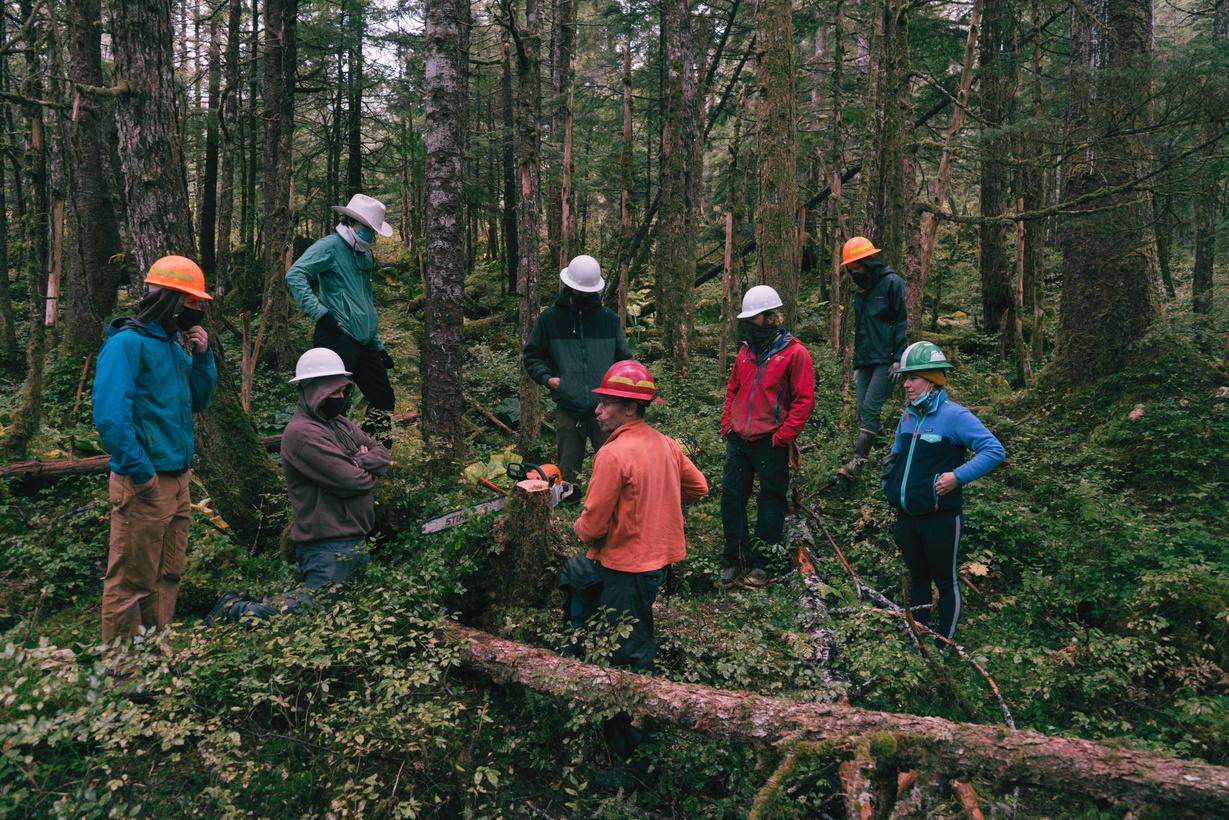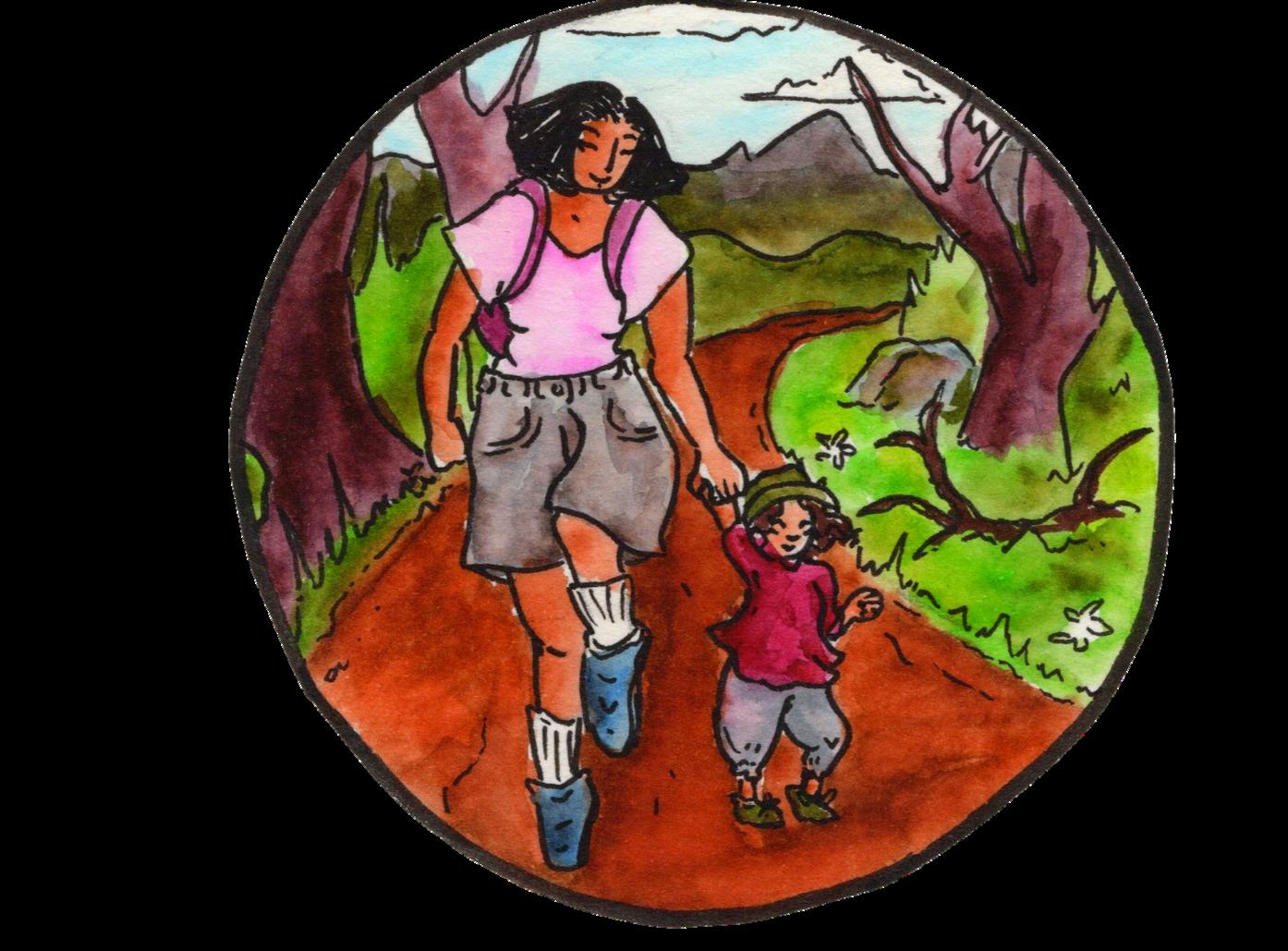
3 minute read
Stewarding And Living On Lands & Waters


Advertisement
INDIGENOUS STEWARDSHIP OF ALASKA IS VITAL TO MAINTAIN SUBSISTENCE WAYS OF LIFE AND RESTORE SACRED CONNECTIONS WHICH FORTIFY THE HEALTH OF OUR COMMUNITIES.
Since time immemorial, Indigenous Alaskans have lived in sustainable and reciprocal relationships with lands and waters. Colonial conquest brought a culture focused on maximizing resource extraction to benefit the rich with little concern for ecosystem health. Now is the time to return this wealth to our communities and enable them to support themselves by working in partnership with lands and waters.
Alaska Native Nations are the original stewards of lands and waters that are now in the possession of state and federal governments. These lands and waters are often governed by state and federal laws, but tribes can also base their claims to these lands on principles of federal Indian laws which recognize the primacy and supremacy of tribally-reserved rights to hunt and fish. The intersection of legal authorities, contemporary land, water, and wildlife management, and traditional knowledge and stewardship practices led by Alaska Native tribes provides a basis for shared management of lands and waters, often called “comanagement.” Tribal co-management in this context refers to the opportunities for shared stewardship of federal lands and waters shaped by specific guiding principles: 1) the recognition of Tribes as sovereign governments, 2) the incorporation of the United States’ trust responsibility, 3) the existence of legitimation structures for Tribal involvement, 4) the integration of Tribes early in the decision-making process, 5) the extent of recognition and incorporation of tribal expertise, and 6) the effectiveness of dispute resolution mechanisms.
In an effort to build nation-to-nation relationships and recognize the inherent sovereignty of Tribal nations, the US government has made recent commitments to strengthen opportunities for tribal co-management of federal public lands. From identification and protection of sacred fishing sites, to the request for a formal forest planning process that incorporates Indigenous values, tribal governments across Alaska are exploring ways to create shared stewardship on public lands.
Collaborative agreements between Tribal governments and the US federal government build specific land management partnerships like the Hoonah Native Forest Partnership, a partnership between Hoonah Indian Association, Huna Totem, ADF&G, US Forest Service, and others, that brings together science and the voices of the community to ensure local people have a say in forest management.

A broader collaborative within Southeast Alaska, led by the Sustainable Southeast Partnership, wants to extend the model of Native forest partnerships to the Tongass National Forest through the Indigenous Guardians program in Southeast Alaska. These programs identify authorities available for co-management, collaborative stewardship, or bridging legal authorities with the recognition of inherent Tribal sovereignty and integration of Tribal governments into decision-making processes. Healthy forests sequester carbon, produce the stream conditions needed for salmon spawning, and provide humans with shelter, warmth, and food. For much of the 20th century, the timber industry in Alaska was dominated by highly subsidized, large-scale, clear cut logging in the Tongass National Forest. Today, industrial logging has slowed and there are many examples of small-scale logging and sawmill operations that sustain both the forest and local communities. Through the Tongass Microsale Program, the US Forest Service makes tiny timber sales to small businesses, and offers free use permits for cultural wood. Small-scale mills are using sustainable practices such as utilizing salvage logs and blowdowns, and are making shingles, lumber, and other products that serve their local communities, as well selling musical instruments and other specialties worldwide. In the boreal forest, businesses such as Kahiltna Birchworks in Talkeetna sustainably produce birch syrup.










